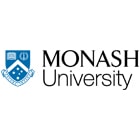- اخبار و مقالات
- Find usIDP AustraliaIDP BahrainIDP BangladeshIDP CambodiaIDP CanadaIDP ChinaIDP EgyptIDP GhanaIDP Hong KongIDP IndiaIDP IndonesiaIDP IranIDP JordanIDP KenyaIDP KoreaIDP KuwaitIDP LebanonIDP MalaysiaIDP MauritiusIDP Middle EastIDP NepalIDP New ZealandIDP NigeriaIDP OmanIDP PakistanIDP PhilippinesIDP Saudi ArabiaIDP SingaporeIDP Sri LankaIDP TaiwanIDP ThailandIDP TurkeyIDP UAEIDP VietnamIDP Corporate
- Social
- فارسی
- Where we operate
- Courses
- Scholarships
- IELTS
- About IDP
- Arrival services
- Arrival services
- Money transfer
- Student health cover
- Student banking
- Accommodation
- اخبار و مقالات
- Find us
- Find us
- Find nearest IDP offices
- IDP Australia
- IDP Bahrain
- IDP Bangladesh
- IDP Cambodia
- IDP Canada
- IDP China
- IDP Egypt
- IDP Ghana
- IDP Hong Kong
- IDP India
- IDP Indonesia
- IDP Iran
- IDP Jordan
- IDP Kenya
- IDP Korea
- IDP Kuwait
- IDP Lebanon
- IDP Malaysia
- IDP Mauritius
- IDP Middle East
- IDP Nepal
- IDP New Zealand
- IDP Nigeria
- IDP Oman
- IDP Pakistan
- IDP Philippines
- IDP Saudi Arabia
- IDP Singapore
- IDP Sri Lanka
- IDP Taiwan
- IDP Thailand
- IDP Turkey
- IDP UAE
- IDP Vietnam
- IDP Corporate
- Social
- LANGUAGE_SWITCHER
- آموزش IDP /
- کالج ها و دانشگاه ها /
- Australia /
- Monash University /
- Bachelor of Arts and Bachel...

Bachelor of Arts and Bachelor of Criminology - Journalism
At MONASH UNIVERSITY
Location
Australia
صلاحیت
Dual Degree
شهریه ها
AUD39000
(2025)
مدت زمان
4 Year(s)
پذیرش بعدی
03 March 2025
امتیاز ورود
6.5
آیلتسCOURSE_INFO
Journalism is the activity and product of gathering, verifying, crafting and presenting news and information to help citizens make the best possible decisions about their lives, communities, societies and governments. The elements that distinguish journalism from other forms of communication make it essential to democratic societies. These include journalistic independence, a discipline of verification, an obligation to the truth and a loyalty to the public – characteristics that separate journalism from an expanding flow of data, as the digital age rewrites the role of the news media in society. This makes journalism one of the most dynamic programs to study at university. In this major, you will have the opportunity to gain professional, practical skills across the full range of digital, print and broadcast media platforms and production technologies. You will learn the building blocks of news while developing a critical understanding of the history, power and shifting context of journalism and addressing the vital issues of the news media today. This unique combination of the practice and study of journalism will equip you to produce high-quality reporting that empowers the informed. In addition, our extensive internships program and publishing opportunities provide you with the industry experience needed to open the door to this exciting profession. Students from a wide range of disciplines also take journalism units to gain professional skills in communication using cutting-edge approaches and media platforms, which boosts employability.
- کمک هزینه تحصیلی کمک هزینه ی تحصیلی
- دوره های کارآموزی
نیازمندی های ورود به Monash University
GCE A Level 9
International Baccalaureate Diploma Programme -28
IELTS - 6.5 (Reading - 6.0, Listening - 6.0, Writing - 6.0, Speaking- 6.0)
Paper-based TOEFL – 550 (Test of written English - 4.5)
TOEFL iBT -79 (Reading- 13, Listening- 12, Writing: 21, Speaking- 18)
ددلاین اپلیکیشن
تاریخ ددلاین مشخص نیست با یک مشاور IDP صحبت کنید برای اطلاعات بیشتر
Further information
If you aren't eligible for the above entry requirements, you might ant to explore pathway options at Monash University. If you want to find out more, speak to our counsellors.
رتبه جهانی
58th / 1250
رتبه جهانیدانش اموزان ما چگونه فکر می کنند؟
هنوز نظری در مورد این موسسه دریافت نکرده ایم
پیشنهادات برای شما
- کارشناسی
- Australia
- نوع کمک هزینه تحصیلی: Fee waiver/discount
- کارشناسی
- Australia
- نوع کمک هزینه تحصیلی: Fee waiver/discount
- کارشناسی
- Australia
- نوع کمک هزینه تحصیلی: Fee waiver/discount
- کارشناسی
- Australia
- نوع کمک هزینه تحصیلی: Fee waiver/discount
- کارشناسی
- Australia
- نوع کمک هزینه تحصیلی: Fee waiver/discount
- کارشناسی
- Australia
- نوع کمک هزینه تحصیلی: Fee waiver/discount
- کارشناسی
- Australia
- DEADLINE: 09 Mar 2025
- نوع کمک هزینه تحصیلی: Fee waiver/discount
Your action plan
گام 1
Shortlist your courses
Choose the best three courses you’re most likely to pursue.
گام 2
Check your eligibility
Get an instant in-principle offer for courses with the IDP FastLane tag.
گام 3
Apply through IDP Live
Fill out the form once and use it to apply to multiple courses.
اپلیکیشن فست لین IDP چگونه کار می کند؟
با "پذیرش مشروط" FastLane ظرف چند دقیقه می توانید در مورد پذیرفته شدن تان در دانشگاه با خبر شوید
یک موسسه یا دوره را انتخاب کنید
یک پروفایل آکادمیک ایجاد کنید
درخواست خود را برای "پیشنهاد مشروط" ارسال کنید
موسسه(ها) مورد نظر تان ظرف مدت چند دقیقه تصمیم خود را به شما اعلام خواهد کرد
برای درخواست پذیرش با کمک یک مشاور آماده شوید




